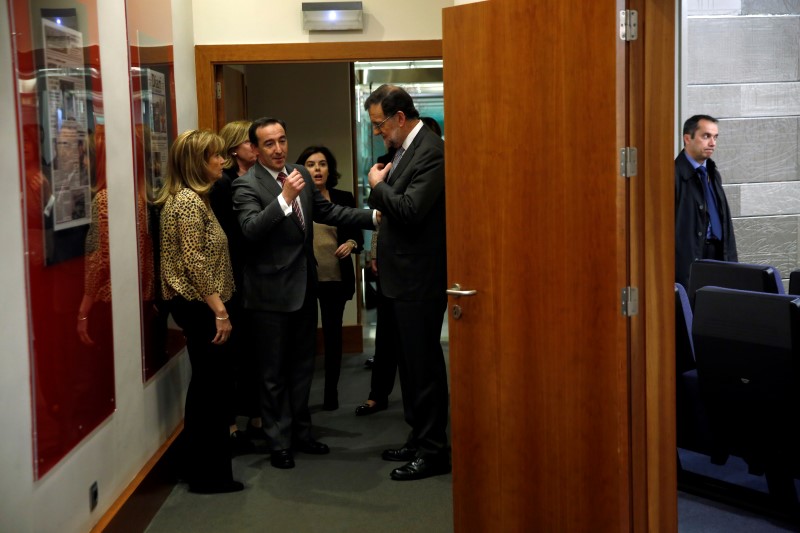By Julien Toyer
MADRID (Reuters) - Spain's political parties on Thursday ruled out last-minute talks to secure a parliamentary majority and form a government, making it virtually inevitable that there will be a new election in June.
Spain has been without a government since an inconclusive December election and King Felipe VI is due to meet all parties next week in a last-ditch attempt to strike a deal.
But Acting Prime Minister Mariano Rajoy, whose People's Party (PP) came first in the December vote although well short of a majority, said on Thursday he would tell the king he did not have enough support to form a government.
The election led to the most fragmented parliament in Spain's modern history, with the PP winning 123 seats in the 350-seat lower house, the Socialists 90, anti-austerity Podemos 69 and Ciudadanos 40.
Rajoy also said Socialist leader Pedro Sanchez was to blame for the stalemate. "Pedro Sanchez can avert the elections. I call him once more to work on a grand coalition government that would bring stability to Spain," he tweeted.
Sanchez has repeatedly ruled out such a possibility and a senior member of the Socialist Party repeated on Thursday that this option was not being considered.
"Is there seriously somebody who still think there could be a grand coalition with the PP? Rajoy knows it from day one, we ran in the elections to make sure he would no longer be prime minister," said the party's leader in parliament, Antonio Hernando.
Hernando also criticised the anti-austerity party Podemos ("We Can") for not agreeing to back a three-way coalition with the Socialists and liberal newcomer Ciudadanos ("Citizens").
Nearly 90 percent of Podemos members last week voted against such a government and the party opened the door on Wednesday to running on a joint platform with a former communist movement if a new vote is called, in a bid to overtake the Socialists as the biggest leftwing political force.
Meanwhile, Ciudadanos leader Albert Rivera, whose alliance with the Socialists failed to win enough parliamentary support, called on Rajoy and Sanchez to take a step back and allow a "transition" government lead by an independent figure to be voted in.
"We should assume that we have failed and we should work on a consensus government that could make reforms," Rivera told Telecinco television.

The idea was immediately dismissed by Sanchez.